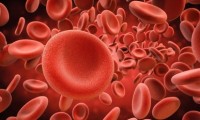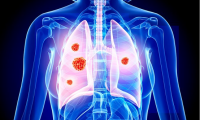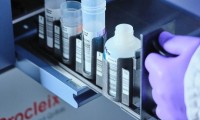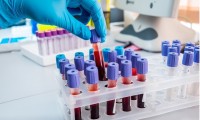-
Blood-Based Machine Learning Assay Noninvasively Detects Ovarian Cancer
- Source: drugdu
- 128
- April 13, 2024
-
Next Generation Instrument Screens for Hemoglobin Disorders in Newborns
- Source: drugdu
- 83
- April 11, 2024
-
Culmination Bio and BillionToOne partner to advance cancer diagnosis
- Source: drugdu
- 145
- April 11, 2024
-
Simple PCR Assay Accurately Differentiates Between Small Cell Lung Cancer Subtypes
- Source: drugdu
- 87
- April 10, 2024
-
First 4-in-1 Nucleic Acid Test for Arbovirus Screening to Reduce Risk of Transfusion-Transmitted Infections
- Source: drugdu
- 93
- April 10, 2024
-
Study reveals new aptamer targeting tool can detect early signs of motor neurone disease
- Source: drugdu
- 159
- April 9, 2024
-
Beckman Coulter receives FDA warning letter
- Source: drugdu
- 88
- April 8, 2024
-
Simple Blood Test Combined With Personalized Risk Model Improves Sepsis Diagnosis
- Source: drugdu
- 142
- April 8, 2024
-
Profound Medical, Siemens Healthineers collab on ultrasound ablation
- Source: drugdu
- 81
- April 7, 2024
your submission has already been received.
OK
Subscribe
Please enter a valid Email address!
Submit
The most relevant industry news & insight will be sent to you every two weeks.













